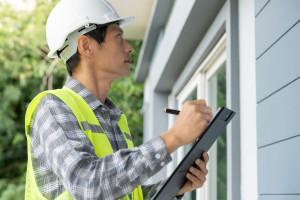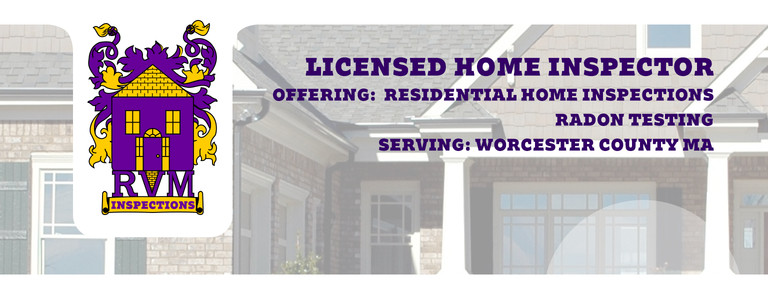 Buying a home is one of the biggest investments most people will ever make. Amid the excitement of house hunting, it’s easy to overlook the critical step of a thorough home inspection. A qualified home inspector is your line of defense against hidden defects, unexpected repairs, and costly surprises. But just hiring an inspector isn’t enough, you need to ask the right questions to get the full picture.
Buying a home is one of the biggest investments most people will ever make. Amid the excitement of house hunting, it’s easy to overlook the critical step of a thorough home inspection. A qualified home inspector is your line of defense against hidden defects, unexpected repairs, and costly surprises. But just hiring an inspector isn’t enough, you need to ask the right questions to get the full picture.
Here are 10 essential questions every homebuyer should ask their home inspector before, during, and after the inspection:
1. What does your inspection cover?
Start by clarifying the scope of the inspection. A standard home inspection typically covers structural components, the roof, HVAC systems, electrical, plumbing, and more. However, it may not include things like mold testing, radon, asbestos, or pest inspections. Knowing what’s included (and what’s not) helps you determine whether you need to bring in additional specialists.
2. Are you licensed and insured?
Not all states require licensing for home inspectors, but it’s best to hire someone who is licensed and carries professional liability insurance. Insurance protects both you and the inspector in the event of an oversight or accident. You can also ask if they’re a member of professional organizations like ASHI (American Society of Home Inspectors) or InterNACHI, which require continuing education and adherence to standards.
3. How long have you been inspecting homes?
Experience counts. An inspector with years of experience is more likely to spot issues that a newer inspector might miss. Ask how many inspections they’ve completed and whether they specialize in the type of property you’re purchasing (older homes, condos, new construction, etc.).
4. Can I attend the inspection?
Always attend the inspection if possible. Walking through the home with the inspector allows you to see issues firsthand, ask questions in real-time, and better understand what maintenance tasks you’ll need to take on. Most good inspectors encourage buyers to be present, it’s a red flag if they discourage it.
5. What are your biggest concerns about the property?
At the end of the inspection, ask the inspector to summarize their top concerns. These might include structural damage, electrical hazards, roof problems, or drainage issues. Don’t be afraid to press for specifics: How severe is the problem? What are the implications? Should I bring in a specialist?
6. How serious is this issue really?
Some inspection reports can seem overwhelming, listing dozens of issues. Ask your inspector to help you differentiate between cosmetic problems, minor maintenance issues, and serious red flags. An experienced inspector can provide perspective, helping you understand what’s normal wear and tear and what might be a dealbreaker.
7. What should I prioritize fixing first?
Not every issue needs to be addressed immediately, especially if you’re on a tight budget. Ask the inspector what should be prioritized in terms of safety, preventing further damage, or preserving property value. This can also help you negotiate with the seller — either by requesting repairs or a price reduction.
8. Do you see anything that might need future maintenance or replacement?
A good inspector doesn’t just identify current problems, they help you anticipate future expenses. For example, the roof may be functional now but nearing the end of its useful life. Knowing that helps you budget ahead and avoid surprises down the line.
9. Can you provide a written report with photos?
A comprehensive inspection report should include detailed findings, recommendations, and plenty of photographs to document the condition of various systems and components. Ask how long it will take to receive the report (usually within 24–48 hours). Review it carefully and ask for clarification on anything you don’t understand.
10. Can I contact you with questions after the inspection?
Good inspectors are happy to answer questions even after the report is delivered. Sometimes concerns or confusion arise days or even weeks after the inspection. Make sure you feel comfortable reaching out with follow-ups. An inspector who stands by their work will be accessible and responsive.
Bonus Tip: Don’t be afraid to ask “dumb” questions.
You’re not expected to be a construction expert, that’s why you’re hiring a home inspector. If you don’t understand something they say, ask for clarification. A great inspector will take the time to explain things in simple terms and educate you along the way.
Final Thoughts
A home inspection isn’t just a box to check during the home buying process, it’s a powerful tool to protect your investment. The insights you gain from a thorough inspection can save you thousands of dollars and spare you from major headaches. But to get the most value, you need to engage with your inspector and ask the right questions.
By doing so, you’ll walk away not only with a clearer picture of the home’s condition but also with more confidence in your decision to move forward, or walk away, from the purchase.
Buying smart starts with asking smart. Don’t leave your future home to chance.








